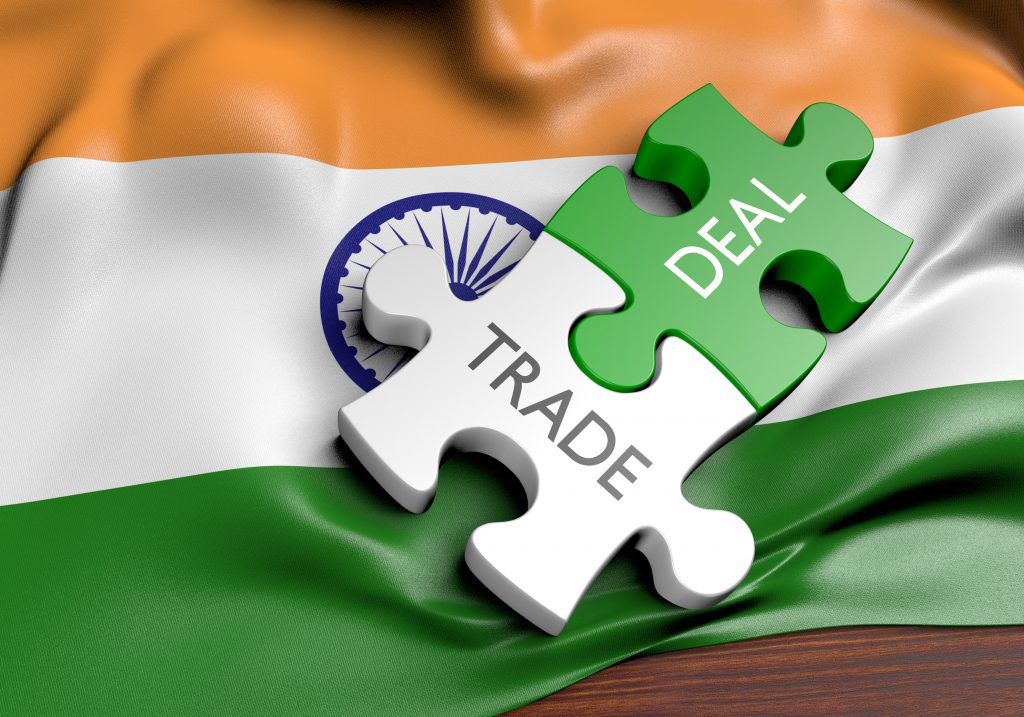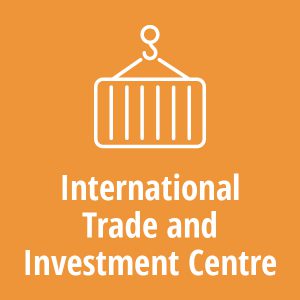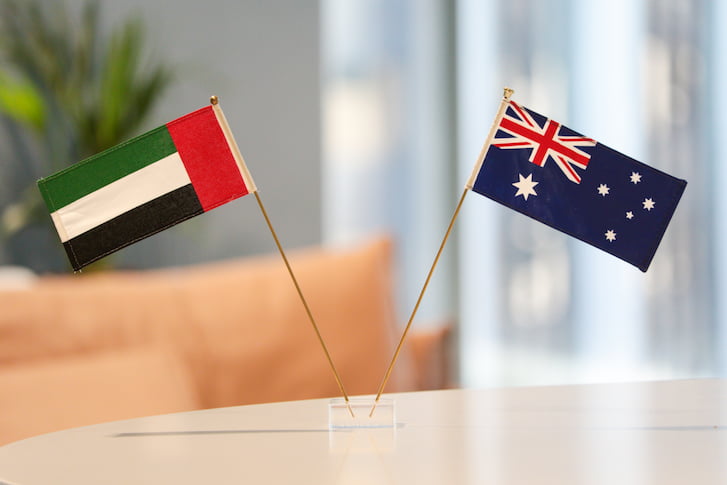WA businesses are set to benefit from a historic trade deal with India that will see tariffs eliminated on almost all Australian exports.
Editor’s note: This article was updated on July 1 to reflect the change in Federal Government.
The Australia-India Economic Cooperation and Trade Agreement (AI ECTA), signed on April 2, will eliminate tariffs on more than 85 per cent of Australian goods exports to India (valued at more than $12.6 billion a year), rising to almost 91 per cent (valued at $13.4b) over 10 years.
India is the world’s largest democracy and the world’s fastest-growing major economy, with GDP projected to grow at nine per cent in 2021-22 and 2022-23 and 7.1 per cent in 2023-24.

In 2020, India was Australia’s seventh-largest trading partner, with two-way trade valued at $24.3b, and sixth-largest goods and services export market, valued at $16.9b.
The Federal Government said it aimed to lift India into a top three export market by 2035, and to make India the third-largest destination in Asia for outward Australian investment.
Key highlights of the AI ECTA include:
- Sheep meat tariffs of 30 per cent will be eliminated on entry into force, providing a boost for Australian exports that already command nearly 20 per cent of India’s market;
- Wool will have the current 2.5 per cent tariffs eliminated on entry into force, supporting Australia’s second-largest market for wool products;
- Tariffs on wine with a minimum import price of US$5 per bottle will be reduced from 150 per cent to 100 per cent on entry into force and subsequently to 50 per cent over 10 years (based on Indian wholesale price index for wine);
- Tariffs on wine bottles with minimum import price of US$15 will be reduced from 150 per cent to 75 per cent on entry into force and subsequently to 25 per cent over 10 years (based on Indian wholesale price index for wine);
- Tariffs up to 30 per cent on avocados, onions, broad, kidney and adzuki beans, cherries, shelled pistachios, macadamias, cashews in-shell, blueberries, raspberries, blackberries, currants will be eliminated over seven years;
- Tariffs on almonds, lentils, oranges, mandarins, pears, apricots and strawberries will be reduced, improving opportunities for Australia’s horticulture industry to supply India’s growing food demand;
- Elimination of tariffs on entry into force for coal, alumina, metallic ores, including manganese, copper and nickel; and critical minerals including titanium and zirconium;
- LNG tariffs will be bound at 0 per cent at entry into force; and
- Tariffs on pharmaceutical products and certain medical devices will be eliminated over five and seven years.
More details of the AI ECTA can be found here.
Australian households and businesses will also benefit, with 96 per cent of Indian goods imports entering Australia duty-free on entry into force.
The deal unlocks a huge market of around 1.4 billion consumers in India.
Stronger services exports market
The Government said the AI ECTA would also further strengthen the people-to-people links between both countries. India was Australia’s third-largest market for services exports in 2020.
Both countries will facilitate the recognition of professional qualifications, licensing, and registration procedures between professional services bodies in both countries.
Australian services suppliers in 31 sectors and sub-sectors will be guaranteed to receive the best treatment accorded by India to any future free trade agreement partner, including in: higher education and adult education; business services (tax, medical and dental, architectural and urban planning; research and development; communication, construction and engineering; insurance and banking; hospital; audio-visual; and tourism and travel.
Australia will also provide access for 1000 young Indians to participate in working holidays in Australia under Australia’s Work and Holiday program.
In a boost to our STEM and IT workforces, the length of stay for an Indian Student with a bachelor’s degree with first class honours will be extended from two to three years post-study in Science, Technology, Engineering or Mathematics (STEM) and information and communications technology (ICT) sectors.
Australia and India have also agreed to undertake cooperation to promote agricultural trade as part of the agreement and will now work toward concluding an enhanced agricultural Memorandum of Understanding (MoU).
India the ‘right partner’

“The AIBC is very encouraged by this important development, which we have been passionately driving and supporting for a decade,” he said.
“The initiative by the Prime Ministers of India and Australia to establish the AIBC over 35 years ago to assist in making these milestones happen is now vindicated.”
He added: “India is the right partner for Australia and Australian businesses must look to India as a market to supply than a market for consumption.”
CCIWA’s head of International Trade and Investment Centre, Michel Carter, said: “The AI ECTA offers enormous two-way trade and investment opportunities for Western Australian business.”
“With India’s economy growing at around 9.2 per cent, it’s one of the fastest-growing large economies in the world,” he said.
“This agreement heralds the convergence of mutual interests to grow trade, investment and the important people-to-people linkages on both sides of the Indian Ocean.”
AI ECTA is an interim agreement and both countries continue to work towards a full Comprehensive Economic Cooperation Agreement.
Newly appointed Trade Minister Don Farrell said in June that during a recent meeting with India’s Minister of Commerce and Industry, Mr Piyush Goyal, he confirmed the Government’s intention to work efficiently through Australia’s parliamentary processes to ratify the AI-ECTA quickly, “so we can deliver immediate trade benefits for our countries”.
“Minister Goyal and I also committed to move rapidly to commence negotiations on the full Comprehensive Economic Cooperation Agreement (CECA) and capitalise on the enormous potential for closer economic ties between Australia and India,” he said.
CCIWA’s International Trade and Investment Centre (ITIC) helps businesses reduce the time, cost and risk of going global. Contact the team for a free consultation on (08) 9365 7620 or via [email protected].












